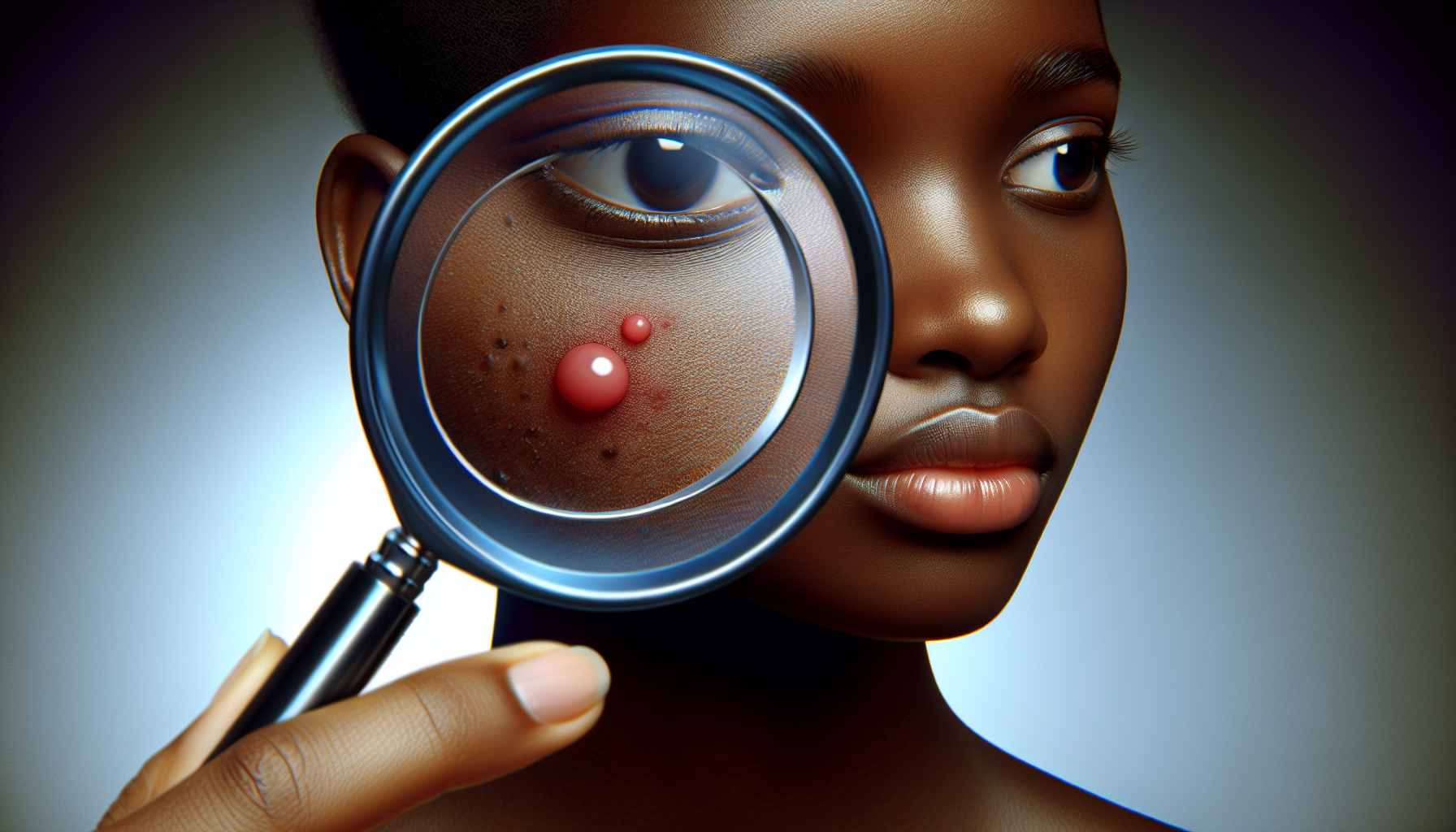Have you ever woken up to an army of pimples invading your face, seemingly out of nowhere? It can be baffling and frustrating, leaving you wondering why your skin has suddenly betrayed you. In this article, we will explore the possible reasons behind these pesky breakouts and provide some helpful tips to combat them. So, if you’re tired of dealing with unexpected pimples popping up on your face, keep reading to uncover the secrets to achieving clearer, healthier skin.
Causes of sudden appearance of pimples
Are you wondering why you suddenly have so many pimples on your face? Several factors can contribute to the sudden appearance of pimples. It’s important to understand that everyone’s skin is unique, and what may cause breakouts for one person may not affect another. However, here are some common reasons why you might be experiencing this:
Hormonal changes
Hormonal changes often play a significant role in the development of pimples. During puberty, your body undergoes various hormonal fluctuations, which can stimulate the sebaceous glands to produce more oil. This excess oil can clog your pores, leading to the formation of pimples. Similarly, hormonal changes during menstruation and pregnancy can also result in increased breakouts.
Stress
Have you been under a lot of stress lately? Stress can affect your skin in numerous ways, and one of them is by triggering the sudden appearance of pimples. When you’re stressed, your body produces more cortisol, a stress hormone, which can stimulate your oil glands to produce excess oil. Additionally, stress can also impair your skin’s barrier function, making it more susceptible to acne-causing bacteria.
Diet
What you eat can also impact the health of your skin. Some foods are believed to contribute to the development of acne. For instance, high-glycemic index (GI) foods, such as refined carbohydrates and sugary snacks, can cause a spike in blood sugar levels, leading to increased oil production and inflammation. Dairy products have also been associated with acne breakouts in some individuals. Moreover, deficiencies in certain vitamins, such as vitamin A and E, can also worsen acne.
Skin care products
Using the wrong skin care products or applying them incorrectly can result in sudden breakouts. Some products may contain ingredients that clog your pores, especially if they are not suitable for your skin type. It’s important to choose products labeled as non-comedogenic, which means they are less likely to cause acne. Heavy cosmetics can also contribute to clogged pores and breakouts, so be mindful of the products you use on your face. Additionally, using expired or low-quality skin care products can also irritate your skin and lead to pimples.
Bacteria and dirt
Excessive bacteria and dirt on your skin can exacerbate acne. When bacteria overgrow on your skin, especially within clogged pores, it can trigger inflammation and infection, leading to pimples. Incomplete cleansing can leave dirt, oil, and makeup residue on your face, providing a breeding ground for acne-causing bacteria. Additionally, using dirty makeup brushes and sponges can transfer bacteria to your skin, aggravating breakouts.
Medications
Certain medications can have an impact on your skin and potentially cause the sudden appearance of pimples. For example, antibiotics can disrupt the balance of bacteria on your skin, leading to an overgrowth of acne-causing bacteria. Corticosteroids, commonly used for inflammatory conditions, can also contribute to acne breakouts. In some cases, birth control pills can cause hormonal fluctuations, which may result in increased acne.
Genetics
Your genetics can also play a role in the development of pimples. If there is a family history of acne, you may be more prone to experiencing breakouts. Genetic factors can influence the sensitivity of your skin to hormonal changes and how it reacts to certain environmental factors, making you more susceptible to pimples.
Environmental factors
Various environmental factors can contribute to sudden acne flare-ups. High humidity levels can increase sweat production, leading to clogged pores and the development of pimples. Pollution can also contribute to the buildup of dirt and toxins on your skin, potentially worsening breakouts. Moreover, excessive sweating during physical activities or hot weather can further aggravate acne by trapping sweat, oil, and bacteria on your skin.
Friction and pressure
If you frequently touch or rub your face, you may unintentionally cause irritation and inflammation, leading to the appearance of pimples. Friction from tight clothing or helmets can also contribute to breakouts, especially on areas in contact with the fabric or equipment. It’s important to be mindful of any habits or activities that might be causing excessive friction or pressure on your skin to avoid worsening acne.
Makeup
While makeup can help enhance your appearance, using the wrong products or not removing makeup properly can contribute to the sudden appearance of pimples. Some cosmetic products contain ingredients that can clog your pores, leading to breakouts. It’s crucial to choose makeup labeled as non-comedogenic or oil-free to minimize the risk of acne. Additionally, not removing your makeup thoroughly before going to bed can allow makeup residue to mix with oil and dirt, potentially clogging your pores and causing pimples.
Understanding the various causes of sudden pimples on your face can help you identify possible triggers and take appropriate steps to manage and prevent breakouts. However, it’s important to remember that individual factors and skin types vary, so what works for one person may not work for another. If you’re struggling with persistent or severe acne, it is always a good idea to consult with a dermatologist who can provide personalized recommendations and treatment options to help you achieve clearer skin.
